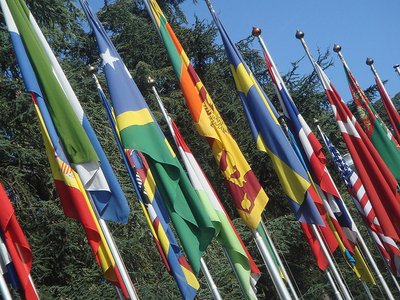Global legal research
When you’re reading world news sources, sometimes you find out that there’s a new constitution, abortion law, or penal code for a country. Frustratingly, there’s usually no link to the full text of the law. So, how do you get a copy?
JURIST’s World Legal News links to documents about which it reports. So does the Law Library of Congress’ Global Legal Monitor. You can also go directly to the source – relevant government body promulgating the law. You can search our Law Library subscription databases such as iSinoLaw, ChinaLawInfo – LawInfoChina, Manupatra (India), Constitutions of the Countries of the World, and vLex (over 100 countries, especially Spanish-speaking). If you are at a loss as to how to obtain a copy of the law, you can use legal research guides.
Reynolds & Flores’ Foreign Law Guide is one of the best sources for locating primary legal resources for a great number of jurisdictions. It’s a subscription database which helps you find the texts of laws worldwide.
New York University’s Globalex is a free, award-winning guide to researching foreign, comparative, and international law. It covers over 100 foreign jurisdictions such as Australia, Brazil, Egypt, India, Italy, Japan, Mexico, and South Africa. In the comparative law research section, Globalex has a guide to researching foreign law by subject, and guides to researching canon law, religious legal systems, comparative civil procedure, and international and comparative family law. It also links to my guide on researching comparative criminal procedure (2007)(see the updated 2011 guide and slaw.ca's guide), and Teresa Miguel‘s guide to researching the law of Latin America.
Globalex’ international law research section has guides to researching the law of the African Union, Council of Europe, European Union, the United Nations, and the World Trade Organization (WTO/GATT). It also has helpful guides on general topical areas such as refugee law, health law, sports law, environmental law, intellectual property, human rights, and international commercial law, and specialized areas such as human trafficking, the Kyoto Protocol, and indigenous people.



